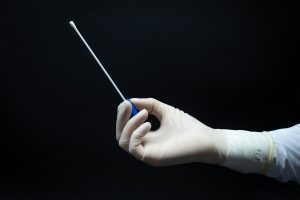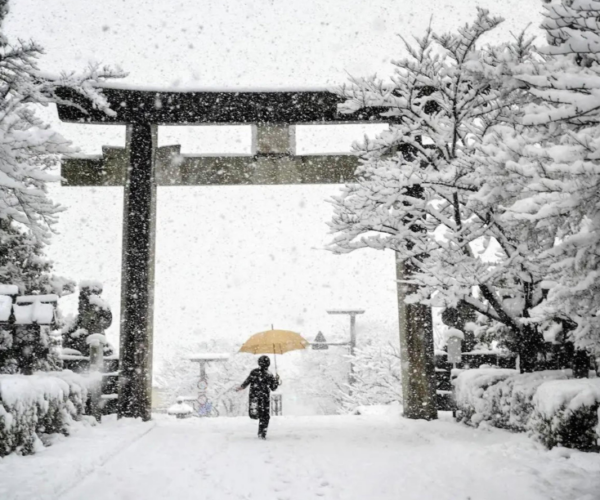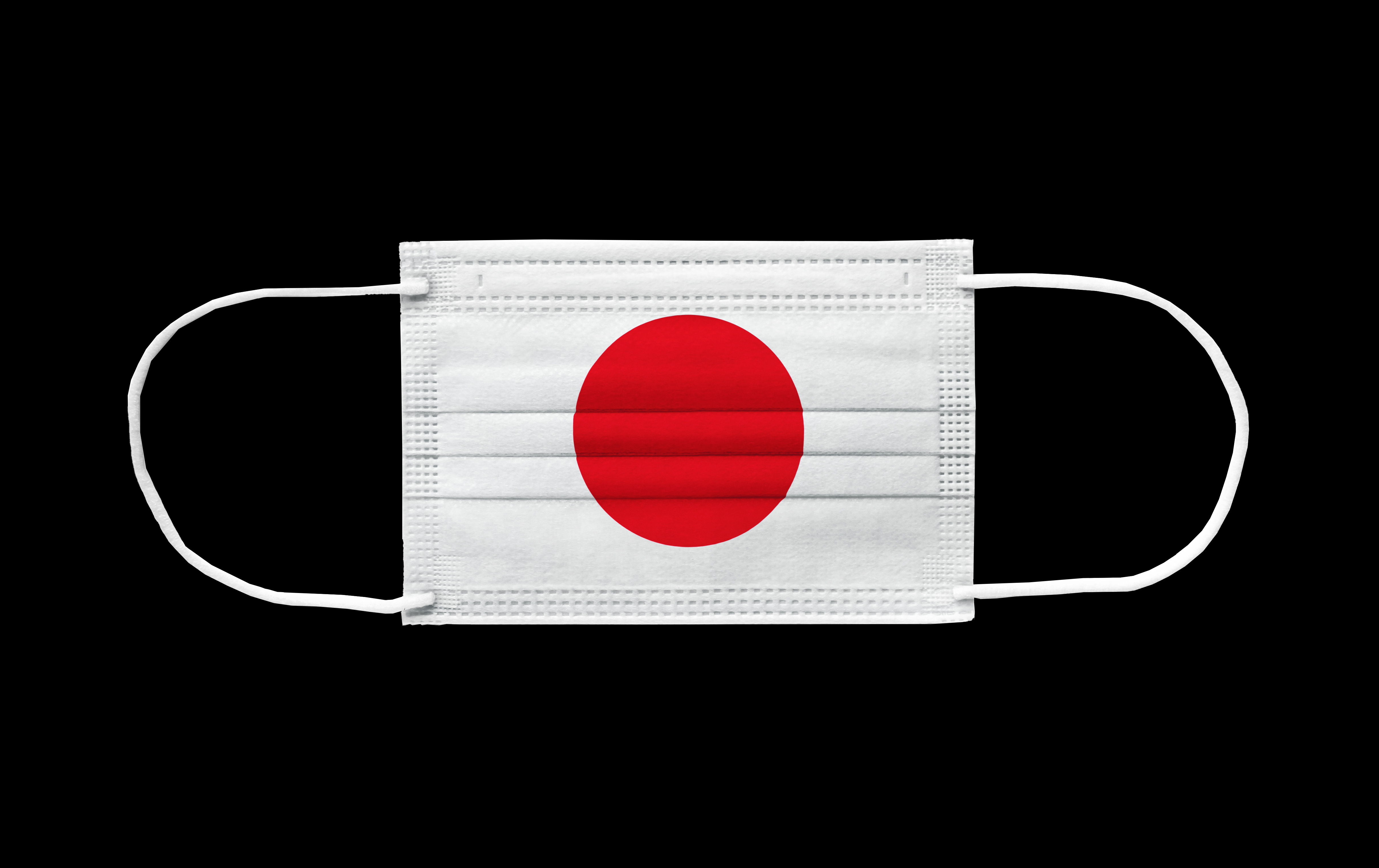This article originally featured in the May 2021 issue of Connect.
An experience with Japanese healthcare and Covid-19
By A. Doi
As an American, my first reaction to Japan’s medical care was awe. I could get an appointment with my primary doctor in less than a week, or walk into any clinic in town and have an exam within the hour. Filling prescriptions took less than 10 minutes. And best of all, I never feared the cost—a basic exam cost about the same as a mid-priced dinner. I gushed over it to my family back home.
Unfortunately, this system failed me horrifically when I needed it most. And for that, I nearly paid with my life.
In early March of 2020, worries about COVID-19 began to spread. I live deep in the countryside of Kyūshū, many hours away from the crowds in Tōkyō and Ōsaka, so worries were low at first. But one by one, cases trickled into my prefecture. Two cases. Four. Five. Each one crept a few train stations closer to my town. I began to get nervous. My schools were slow to close, but when they did, I was transferred to work full-time at my office in the BOE. With no lessons to plan I had no work to do, but go I must. I wasn’t thrilled, but I was no exception—all the teachers in town were required to come to their offices and sit together, day after day, with nothing to do. We all wore masks, were courteous about distance, and approached the situation with humor, but anxiety hung thick in the air.
Then on the first Friday of April, I developed a cough. By that evening I felt feverish. I rested at home for the whole weekend, but there was no improvement.
And then on Sunday, word came that there was a COVID-19 case in my town.
On Sunday evening I called my office about my symptoms. They quickly told me to stay home on Monday, and that my coworker would take me to a clinic. I painstakingly wrote a list of my symptoms using a kanji dictionary. Dry cough. Fever. Head and body aches. Stomach upset. It was like writing a checklist for COVID-19. This made me very anxious. I was 26 years old, so age was on my side. However, shortly before coming to Japan the previous year, I’d had a close brush with meningitis which left me in a wheelchair for a month. I wrote this down in detail, and explained my fears that I might have heightened vulnerability. However, the doctor didn’t seem concerned. He did a five-minute exam and told me I had a cold, gave me cough suppressants, and sent me home. He said my three-day fever was not a concern because my lungs sounded clear. My office was more skeptical, and agreed to give me the rest of the week off.
By Friday, I couldn’t get out of bed without coughing uncontrollably. My head throbbed. As the day wore on, I felt more and more tired and confused. When I went to the kitchen to make lunch, I found myself wandering around my kitchen in a half-drugged stupor because I couldn’t remember why I was there. Something was very wrong. I messaged my coworker for help. He called the COVID-19 hotline and was put on hold. He found me a hotline for an English phone translator call center, so with its help I began calling the COVID-19 hotline too. After many hours, we finally got through and were told a local hospital could send an ambulance. By now it was such a struggle to think clearly that I wasn’t afraid anymore. I just wanted to hang up and go to sleep. In fact, I did exactly that at one point, but my coworker sensed my decline and began messaging and calling me relentlessly, making me talk to him and urging me to hang on. All day long, he alternated between calling the hotline and calling me.
That night, reality burst through the fog when paramedics arrived in full hazmat suits and face shields to put me in an ambulance.
I was so scared that I started to cry. The paramedic who sat with me was asking questions in Japanese, and despite my relative fluency I was so distressed I could barely understand or answer. Thankfully I had brought my symptoms list, so I gave it to her and she took my information from there. She chatted with me kindly, trying to help me calm down and get my mind off the situation.

At the hospital, we were met with a full team of doctors and nurses. A new hospital-grade mask was strapped to my face as soon as I exited the ambulance, and I was rushed through a lung scan, an X-ray, and a blood test. Any clothing or belongings I removed for the scans were immediately put in plastic bags. Then I was placed in a small, air-filtered isolation chamber to wait for the bloodwork results.
When the doctor returned, my coworker called on the phone to help us translate. The doctor showed me the results of the blood test and explained that my white blood cell count was slightly elevated; however, he said that it could not prove definitively whether or not I had the new coronavirus. I was surprised and asked what he meant, because I had assumed the blood test was a test for COVID-19. It was not. It was a general blood panel. The doctor said that I should go home, and that if my symptoms got worse, I should call them on Monday so they could do the COVID-19 test and possibly keep me at the hospital.
I was frustrated. I’d been feverish, coughing, and aching for
a week now. How much worse must the illness become? But I was too exhausted to argue. I was prescribed a short course of antibiotics and given paperwork that asked me to self-quarantine for the next two weeks. This included instructions to separate myself from any family members in my own home, by isolating myself in a separate room, avoiding any physical contact, and wearing a mask even indoors. In short, I was instructed to behave like a positive case and cut myself off from my support group, but not given either a test or a doctor’s note exempting me from work. The hospital released me late that night. I had been told not to take the train, so a coworker needed to come and pick me up.
Saturday and Sunday passed in a blur. On Monday morning when I stood up and started coughing, my chest tightened and tickled ominously. It felt like the start of an asthma attack. I’d had asthma before, but not for years. The more I coughed, the tighter it got. I quickly went back to bed and called the English hotline. I explained that the hospital had told me to call on Monday for testing and admittance if my symptoms worsened, and the operator relayed my situation to the hospital.
After a long time on hold, the hospital answered . . . and told me not to come back
They explained that the doctor I had seen on Friday was only a part-time doctor who worked on weekends. The main doctor had reviewed my lung scan today, and concluded that since my lungs had looked healthy on Friday, I did not need a test. I explained that my lungs might have been fine on Friday, but today it was getting difficult to breathe. They politely repeated the doctor’s verdict and that they would not see me. They also suggested that if I wanted to seek treatment at another hospital, I should call it first and then get a friend to drive me because I only qualified for an ambulance ride once.
At that point, I gave up.
I had barely eaten all weekend because I was too tired and confused to prepare food. Now, I was coughing too much to even stand up. I messaged my office and my family, told them what had happened, and crawled into bed. I don’t remember much after that.
Unbeknownst to me as I lay in a fog, my illness had sparked chaos in my office. The coworker who had driven me to the clinic and the coworker who had picked me up from the hospital had been placed on quarantine to wait for the results of my COVID-19 test. However, when the hospital told me it would not test me, they were called back to work. My other coworker who had helped me call the COVID-19 hotline called it again, but was put on hold. He called clinics and other hospitals, but was directed back to the COVID-19 hotline. He called the hospital I’d been taken to and unleashed a raging rant, telling them that I couldn’t even feed myself anymore, and that their negligence was responsible for whatever fate awaited me now. They were apologetic and expressed surprise that I was so ill (although I had told them earlier that same day), but did not offer any further help.
And so I slept on in my apartment. My coworkers and friends messaged every day to check on me, and took turns dropping by with food. By now I started coughing when I even rolled over, so I didn’t get up at all except to bring the food from my door to my bed or to go to the bathroom. I couldn’t even talk on the phone with my family because I coughed too much, so we texted whenever I was awake.
Days passed. One afternoon when I woke up, the fog seemed a bit less hazy. I checked my phone and realized it was the weekend. I had slept for more or less the entire week. On standing up, I found I could manage the walk to the bathroom without coughing as much. Over the next few days I slowly began sitting up and moving around my apartment for a short time each day, always mindful of my breathing and whether I was thinking clearly. The next weekend, I ventured outside and biked slowly around my apartment to see how I felt.
The fresh air was amazing after three weeks in bed, but when I got home, I was exhausted and slept for two days.
After that I was much more careful.
All in all, it took one week from the first symptoms until breathing became difficult. Then it was almost three more weeks before I could walk or bike for a short time without immediate relapse. Altogether, I spent about three full weeks on bed rest. At the end of the fourth week I still couldn’t speak without coughing, but I could breathe fine and even manage to bike for short distances. I updated my office about the improvement, and that my coughing was almost gone. They asked me to return to the office the next week.
Looking back on my experience, all I can say is that I was very lucky. I am incredibly lucky that my office took my symptoms seriously and sent me home for bed rest immediately, even when the clinic doctor denied the need. Some survivors of the new coronavirus have reported scarring of their lung tissue and long-term breathing problems, but I have avoided this—whether because my office immediately put me on bed rest so that I wouldn’t strain my lungs, or because I am young and had very healthy lungs before, we may never know.
But most of all, I am incredibly lucky that my coworkers were so helpful, attentive, and even self-sacrificing in the way they exposed themselves to me with no hesitation, to make sure I received as much care as they could get me. Sadly, even when they fought their best on my behalf, the medical system still denied me care. It fell on them to nurse me well. It is no exaggeration to say that I owe them my life. If not for their constant calls and their visits with food, I could easily have starved in my apartment, too delirious and weak to make myself food.
If there is any lesson to be learned from my experience, it’s that networking is critical at this time. Whether you are at risk or not, please consider discussing a buddy system with coworkers or friends—having an agreement with someone so they can be your advocate if you become ill, whether that means helping to call the hospital or dropping off groceries. Support your friends as well. Make sure they know that they can count on you for help. The Japanese medical system has served me well in most respects, but when worse went to worst, it was the care of friends that pulled me through. Physical isolation will help you stay healthy, but social isolation will not. We all need to stick together in these times. I promise that if you need help, whether we are strangers or best friends, you can reach out to me. And I hope that I can rely on you as well.




